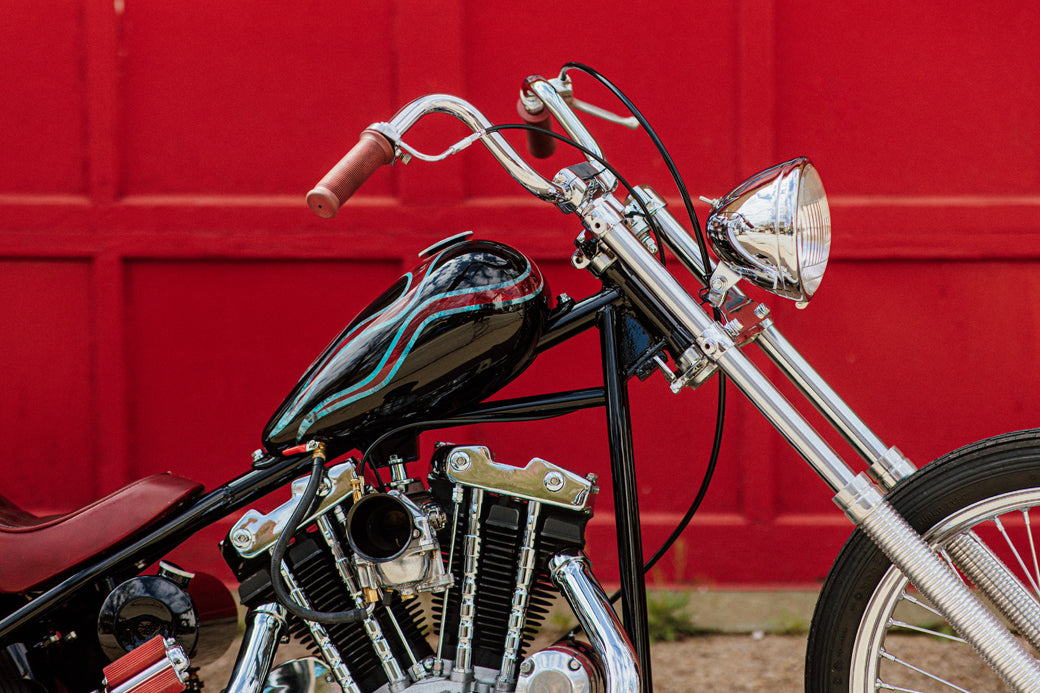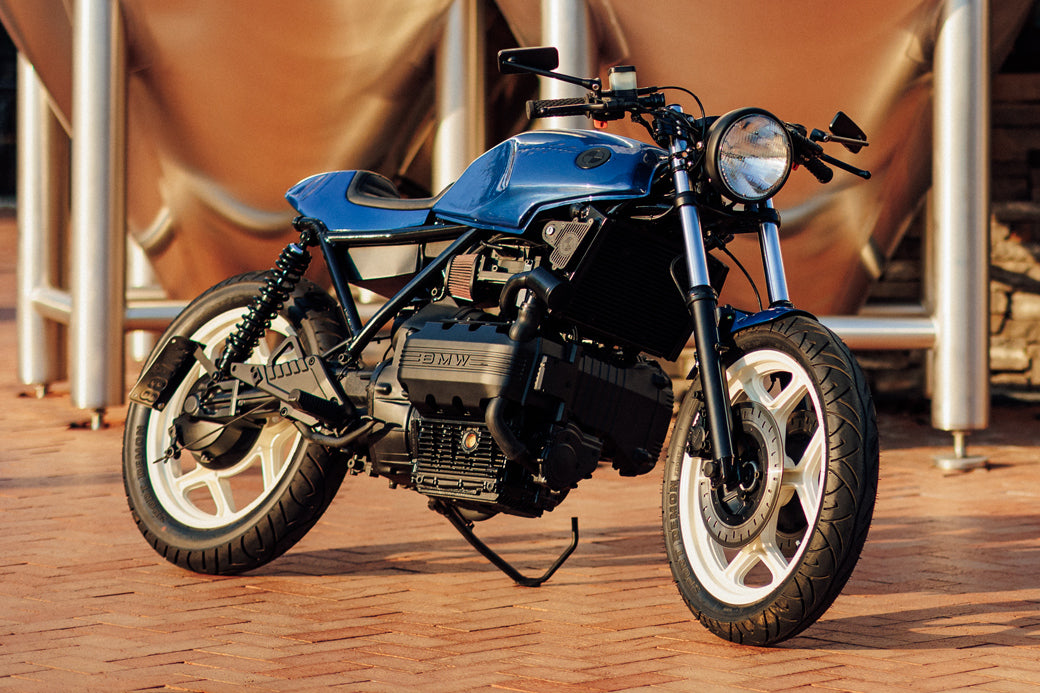Jessika Janene: This Triumph was won on an eBay auction. The seller said it was stored in an Ohio barn since the 1970s but was originally from Indiana. It still has the original registration and inspection stickers on the frame’s downtube. I was looking for a pre-oil-in-frame bike with a unit engine, and 1968 was a good year for the Triumph Bonneville.
JJ: My plan was to buy a low-cost 1960s 650cc Triumph and create a race bike to run at the Bonneville Salt Flats in northwestern Utah in 2020, totally self-supported, with only the help of my partner, Adrienne. I was set on participating in the AMA’s Run Whatcha Brung amateur event. This was also an all-motorcycle event, which is cool. The trials are AMA-recorded and regulated. I wasn’t interested in clocking an official record like other sanctioned events, I just wanted to accomplish the goal of making a solid run on a bike that I built–an old bike at that. Then the pandemic hit, and my plans were altered in myriad ways.

JJ: The race history of the Triumph bikes was the draw for me. The salt flat racers I love are the spindly framed old bikes, mostly Triumphs or English in origin. I liked the pure mechanical old-school engineered DIY mentality. I don’t build pristine, showy bikes that are not meant to be ridden. This was my first build designed for a specific task–just racing on the salt.
JJ: The frame was modified with a hardtail section from Lowbrow Customs. I wanted a simple, light, strong, and easy solution for a stretched-frame bike, and this provided almost four inches of length. I never intended to go with the bobber seat, headlight, or brake light–they were added after COVID scrapped my plans. I figured that I’d ride it on the streets, so I needed to keep it legal. My race seat would have been a handmade, low-profile “pad” that mounted to the rigid rear frame and mudguard.
This bike has the original proportional forks on purpose, which I rebuilt with all new internals and roller bearing headset. They were the right weight and had more than enough performance for these needs. The twin leading shoe front brake is a classic and has amazing stopping power. Plus, it looks crazy old-school.
The paint on the front cradle frame is original, as far as I can tell. I touched it up a little bit but wanted to keep the OG paint and the vintage Indiana inspection stickers from the 1970s. All parts except the cradle and triple tree are raw steel or aluminum, oiled to keep the rust away.
JJ: The engine is a .05 overbore with high-compression pistons, ported and flowed head with proper race springs, Black Diamond valves, new seats, and bronze guides. The cams are stock with a special re-grind that focused on duration. DiStefano Speed did that specialty work. I installed all new bearings and seals everywhere on the entire engine, even new main bearings on the reground crankshaft expertly sorted at Pittsburgh Crankshaft. I wanted to avoid a battery, like most race bikes, and my hatred of points ignition and crappy coils sent me on a quest for a magneto. I found the proper one at Electrex. It has a small single-phase alternator that puts out almost 50w and a tiny regulator/rectifier converts it to DC for use on the LED lighting with wattage to spare. I installed new Amal MK1 Premier carbs with open velocity stacks–vying for the classic Brit-looking power plant. To finish it off, I used British Standard raw steel upswept exhaust pipes, a peanut fuel tank, and a canister oil tank.


JJ: I started my transition in November of 2020 amid the chaos of the early pandemic and my work-from-home hamster wheel lifestyle. This revelation hit me like a sucker punch. My egg cracked, a term used in the transgender community to define the moment of revelation. I wasn’t a person who knew all of my life that I was living as the wrong gender. I was not hiding it from others or repressing it due to societal or religious pressures, but once it was revealed to me, I swore to myself that I would not live in the shadows. My life will be the same, if not better. When I told my closest colleague and friend I was in transition, he said, “Wait, you are the most “guy” guy I know. Are you kidding me?” I have become the woman I was meant to be and still remain a passionate motorcyclist and gearhead. Being transgender and living my truth makes all of the other parts of my life more special. Knowing who I am let me stand even more firmly on the foundation of what I believe, love, and enjoy.
JJ: As a trans woman in motorcycle culture, I want to be visible and contribute to bringing all transgender people up. Sometimes it’s a one-on-one conversation, a magazine interview, or a public speaking event. I don’t need to wear it on my sleeve, I just live it. To me, that’s the most powerful way to be in a culture that is mostly cis men. I’m just me, I’m a woman.
JJ: I transitioned because there is no other option for me—living my truth is not negotiable. The proverbial Genie cannot be put back in the bottle. I am, and perhaps always was, a woman. When I was young society taught me to suppress anything feminine, we didn’t have options in my small world during the early 70s. Transgender was not on the radar, and a transition was unthinkable! I wasn’t born in the wrong body, this is my body, and I have affirmed it. In moto-terms, I guess you’d call me a Restomod.




















